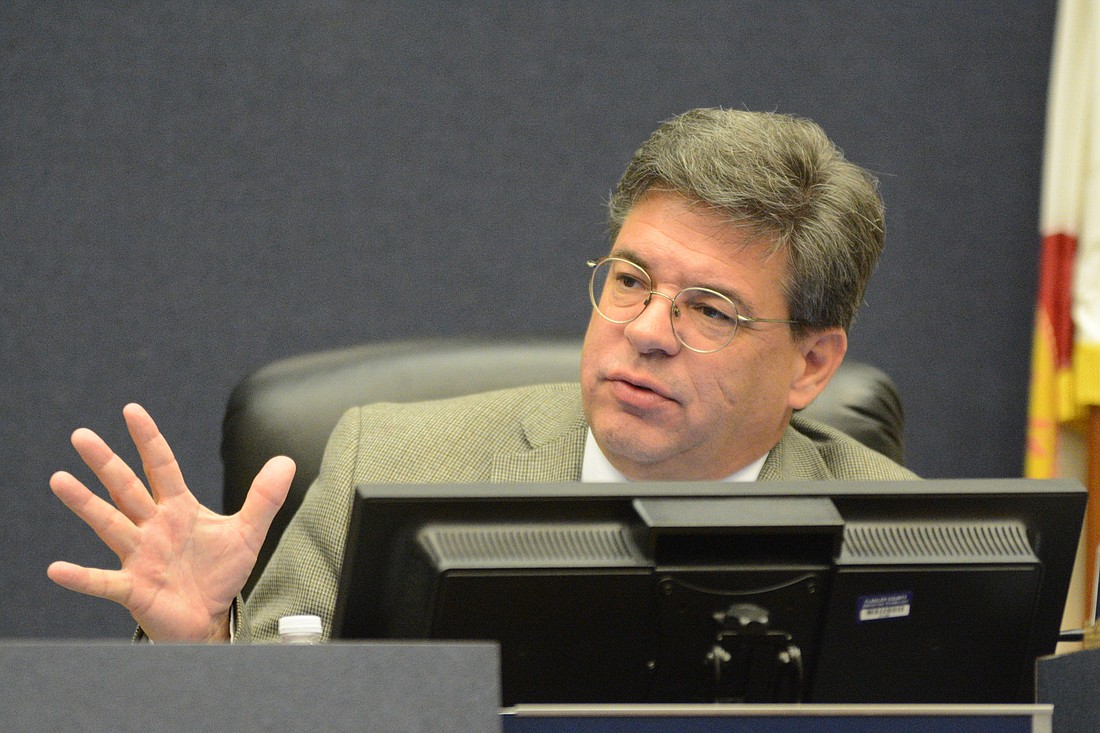- December 15, 2025

If the sand on Flagler County's beaches is picked up in a storm and blown across State Road A1A — as it was during Hurricane Matthew — the county can't just pick it up and stick it back on the beach. State and federal agencies won't allow it. That sand is considered "contaminated."
Nor can the county just go out and buy hardware store sand, or mine sand from inland or a neighboring county. That sand is mostly considered "incompatible sand."
But Flagler's dunes are weakened, and the county needs sand from somewhere to shore them up. The restrictions leave the county with limited options. Meanwhile, weakened dunes contribute to washouts along State Road A1A, and breached areas leave the homes behind them unprotected as hurricane season begins.
"People think, ‘Sand — oh, you just have sand on the beach, get it from the kids’ sand box; get it somewhere else; just dig it up, it’s up the street,'" County Administrator Craig Coffey said at a County Commission meeting June 19. "There are all kinds of measures. There's a 'sand spec'... and the sand spec is not only particle size. It could be shell content, it could be color."
The sand also can't contain too much carbonite, or it will "compact like cement and stop sea turtles from nesting in it," Coffey said. The county will also have to get waivers to do any beach work in sea turtle nesting season, which began May 1 and ends Oct. 31.
There's a source of about five million cubic yards of the right, compatible sand offshore, but getting clearance to dig it up and add it to Flagler's beaches to reinforce the county's dunes would take about a years' worth of permitting.
Flagler County is starting the process anyway and plans to hire a firm to start the permitting work, while searching for other places that have compatible sand. But for the meantime, areas along the beach remain unprotected.
"It’s frustrating to know that it’s lurking right offshore," Commissioner Charlie Ericksen said. "If that water’s gotten all the way to the embankment there on the north end of A1A with what little we've seen, naturally it's going to erode more and just shut this road right down."
One potential sand source in St. Johns County looks promising, Coffey said, but only has perhaps 200,000 tons of sand. The county's proposal for dune repair had called for over a million tons.
"We’re looking at scaling back our projects; we’re looking at trying to find sand sources," Coffey said.
Regulations about sand compatibility, County Attorney Al Hadeed said, are ultimately to the county's benefit. "You don’t want incompatible sand," he said to the board. "If you bring in incompatible sand, you will lose the character of these beaches that are so remarkable, so unique in the state of Florida, because it’s coquina sand. They don’t manufacture coquina sand; the last time cocuina sand was manufactured was at the end of the ice age."
"Keeping all that in mind, we’re still vulnerable," County Commissioner Nate McLaughlin replied. "It’s just a little frustrating for this panel to live through this year with that vulnerability."
County Commissioner Greg Hansen said the board's problem wasn't sand so much as turtles, and the restrictions on moving sand during nesting season.
"We don’t have a problem with the sand, we have a problem with turtles," he said. "Unless we get permission to move sand, we’re just going to sit here."
With a state bill permitting medical marijuana awaiting the governor's signature, Flagler County is preparing to lift its ban on medical marijuana.
But it's not quite ready yet: At a meeting June 19, the County Commission voted to extend the ban on medical marijuana dispensaries within the county for an additional 90 days.
That time is needed, Flagler County Deputy County Administrator Sally Sherman said, so that the county's proposed ordinance regulating the dispensaries can be heard by the county's Planning and Land Development Regulation Board.
It will then have to come before the County Commission twice for a vote.
"We are going to bring it back as soon as possible," possibly well before the full 90 days are up, Sherman said.